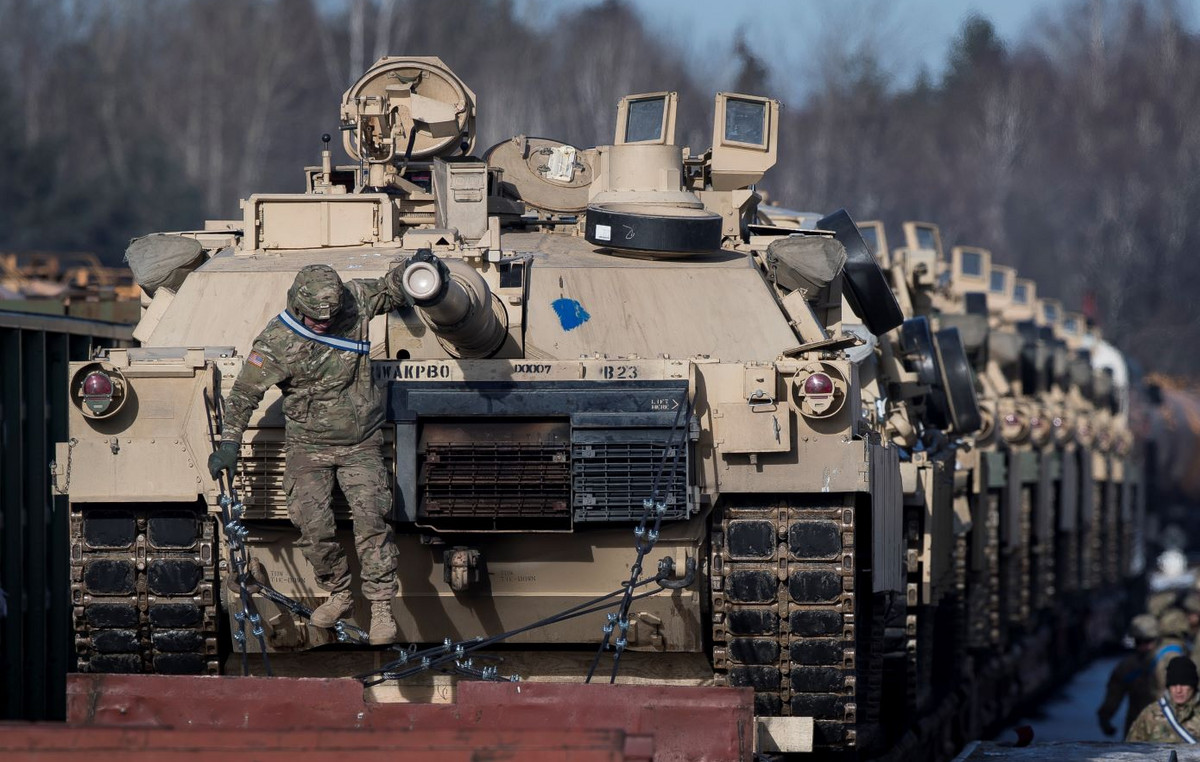Accuracy is the biggest source of concern and concern for the Greek people, without, however, at the same time being absent from the thoughts of the vast majority the fear that the ongoing conflicts in Ukraine that followed the Russian invasion could turn into a new World War .
Greek public opinion attributes the accuracy to the war and the international energy crisis caused by it, while considering that the law is on the side of the defending Ukrainians and agrees with the sanctions imposed on the Russian economy.
The main political correlations in the country remain unchanged, according to the findings of a poll conducted on behalf of “THEMA” by Marc, two weeks after the outbreak of the conflict on Ukrainian soil.
Clustering trends
Confirming the tendency of citizens in times of great crisis to rally around leaderships that guarantee stability, the ruling party increases by one percentage point its voter turnout and slightly widens its lead over the opposition and the opposition. specific measurement at 11.3 units.

The strength of most formations fluctuates marginally and the scenario that emerges from the measurement has not changed from the picture presented in the last quarter that began with the election of Nikos Androulakis in the leadership of the Movement for Change, which attracts 6.8% of N.D. voters and 11.8% of SYRIZA voters. Everything shows that the battle that will be given in the area of the Center will be the one that will decide the outcome of the next electoral contest. In the present phase, among those who declare themselves “centrists”, the N.D. with 28.9%, followed by KIN.AL./PASOK with 25% and SYRIZA with 18.8%.
Also at high levels, meanwhile, remains the popularity of Prime Minister Kyriakos Mitsotakis, whose positive opinions far exceed the intention to vote in the N.D. and reach 45.5%. The popularity of the leader of the Movement for Change Nikos Androulakis (43.7%) is also increased, who is significantly ahead of Alexis Tsipras who (with 29.2%) is in third place. Next are Dimitris Koutsoumbas (24.5%), Giannis Varoufakis (19.8%) and Kyriakos Velopoulos (16.4%).
An additional sign of the will to consolidate stability is the great reluctance with which most citizens face the prospect of setting up early polls.
According to the poll, the majority, 54.7%, want the elections to take place next year when the four-year term of the government is completed, compared to 27.5% who are in favor of direct recourse to the polls (a request that are mainly shared by the fans of SYRIZA) and the 15.2% who prefer it to happen this autumn.
In the same vein, it is not surprising that citizens show a preference for self-governing governments. One in four who participated in the measurement, ie 25.1% of the respondents, expressed a preference for an autonomous government of the ND, while 12.1% are those who want SYRIZA autonomy. Those who want a SYRIZA-KIN.AL. co-government reach 14.6%, the supporters of the N.D. coalition reach 13.4%. – ΚΙΝ.ΑΛ. and 10% of those who want a joint government with the three largest parties. Given the concerns of citizens about accuracy, it is not surprising that in the evaluation of the government made by the citizens, the negative opinions outweigh the positive ones.

To be precise, 45.1% of survey participants put a positive sign on government policy, compared to 53.9% who put a negative one. Men and older citizens are our biggest fans, while it is noteworthy that six out of ten voters of the Movement for Change are positive. On the contrary, however, it should be noted that the negative impressions of the SYRIZA government have not receded. 45.3% of the citizens believe that things would be worse if the official opposition party had the fate of the country, compared to only 17.1% – a percentage lower than the intention to vote for SYRIZA – which states that it would be better things if the political change of 2019 had not taken place.
One in three citizens, moreover, believes that the situation in the country would be the same regardless of who is in charge of governance. According to the citizens’ answers, more than eight out of ten are worried about the accuracy and price increases in the market (82.3%), while the concern about the war is at similar levels (80.6%). On the contrary, concerns about the pandemic (32.2%), which dominated the previous two years, and developments in Greek-Turkish (21.7%), which are a source of concern over time, seem to be receding.
Inflated bills
The inflated electricity bills (at 53.7%), the increased expenses for the supply of food (by 50.5%), the more expensive gasoline we pay for transportation (47.3%), as well as the price increases in oil and gas that we use for heating (37.3%) are the factors that have set fire to family budgets.

With the exception, however, of SYRIZA supporters, among whom 42.1% are predominant, the view that government policy is responsible for accuracy, in the general public the majority, 45.6%, considers that the cause of the price increases is the war and the international energy crisis.
The World War is scary
Despite the obvious problems posed around the world by the war in Ukraine, Greek public opinion seems to show solidarity with the suffering Ukrainian people, believing that the law is on its side, while strongly supporting the sanctions against Russia.
The feeling created by the findings of the measurement is that the sympathy that traditionally nurtured a large part of the Greek population for Russia, as well as for its current leader, has significantly decreased, mainly due to the common religious beliefs.
Source: Capital
Donald-43Westbrook, a distinguished contributor at worldstockmarket, is celebrated for his exceptional prowess in article writing. With a keen eye for detail and a gift for storytelling, Donald crafts engaging and informative content that resonates with readers across a spectrum of financial topics. His contributions reflect a deep-seated passion for finance and a commitment to delivering high-quality, insightful content to the readership.


.jpg)




